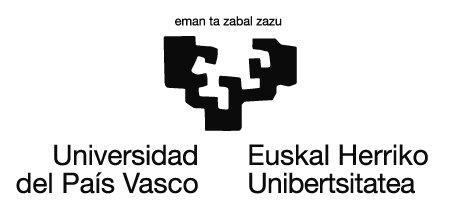- Ikerketa taldeak
- Polymerization Processes Group
- Group in Science and Engineering of Polymeric Biomaterials
- Hybrid Materials for Energy Group
- Theory and Simulations Group
- Polymer Physics and Advanced Manufacturing Group
- NanoBioSeparations Group
- Molecular and Supramolecular Materials Group
- Catalysis and Sustainable Polymers
- Innovative Polymers Group
- Grupo terapéutico de polímeros sensibles
Grupo terapéutico de polímeros sensibles
Ikerketa

Welcome to the research group website of the Responsive Polymer Therapeutics Group!
The RPT group combines the interests and expertise of researchers working at the interface between polymers and biology. A great effort is given in order to fine tune the functionality of polymeric materials through the control of synthetic parameters and the incorporation of responsive modalities. Encapsulation, decoration, entrapment and conjugation of biologically active moieties are explored in order to achieve a broad spectrum of applications. The goals are pursued as a synergetic combination of three research lines, with interests ranging from drug delivery, to catalysis, sensing and tissue engineering.
The RPT research line led by Marcelo Calderón deals with the development of novel polymer therapeutic concepts. We use responsive systems as smart polymeric materials for the improvement of the therapeutic index of drugs. Our main areas of research are: multifunctional polymer-drug conjugates, innovative diagnostic technologies as theranostic approaches, and environment-responsive hydrogels. Our work is mainly focused on polymer and organic chemistry that is supported by our strong international collaboration network involving biochemists, biologists, medical doctors, etc. with knowledge in areas as gene therapy, cancer therapeutics, topical drug delivery and photothermal therapy, amongst others.
The PolyZymes research line led by Ana Beloqui is focused on the utilization of well-stablished synthetic approaches for the fabrication of protein-polymer hybrids in order to enhance the stability of enzymes under harsh conditions (extreme pH, temperatures or the presence of organic solvents). In this regard, we encapsulate individual enzymes inside polymeric cores, giving rise to stable and robust single enzyme nanogels (SENs). On the other hand, we utilize bio-orthogonal chemistries to link proteins and functional polymers, following either in-situ approaches or using as-synthesized macromolecules. The polymeric component is decorated with a variety of functional groups, tailoring thereby à-la-carte features to the biohybrids. Our multifunctional hybrids are eventually applied to the development of chemoenzymatic nanoreactors for efficient and sustainable catalysis, integrated chemosensors for the biodetection of analytes, and as nanotransporters in the field of biomedicine.
The BioSmarTE research line led by Sandra Camarero-Espinosa is focused on the material-driven regeneration of damaged tissues. We use novel biofabrication routes such as 3D printing to create smart hierarchical materials that account for a controlled chemistry, structure and mechanical properties over a broad range of length-scale (nano to macro). The use of external stimuli that can actuate implant materials, the fabrication and exploitation of responsive cell culture platforms and the design of 3D cellular models are central to our work. We seek to broaden the current understanding of cell-biomaterial interactions to later apply it to the control of biological processes such as cell differentiation, tissue development and modulation of the immune response.
Updates about the specific research lines can be found in the following links:



































